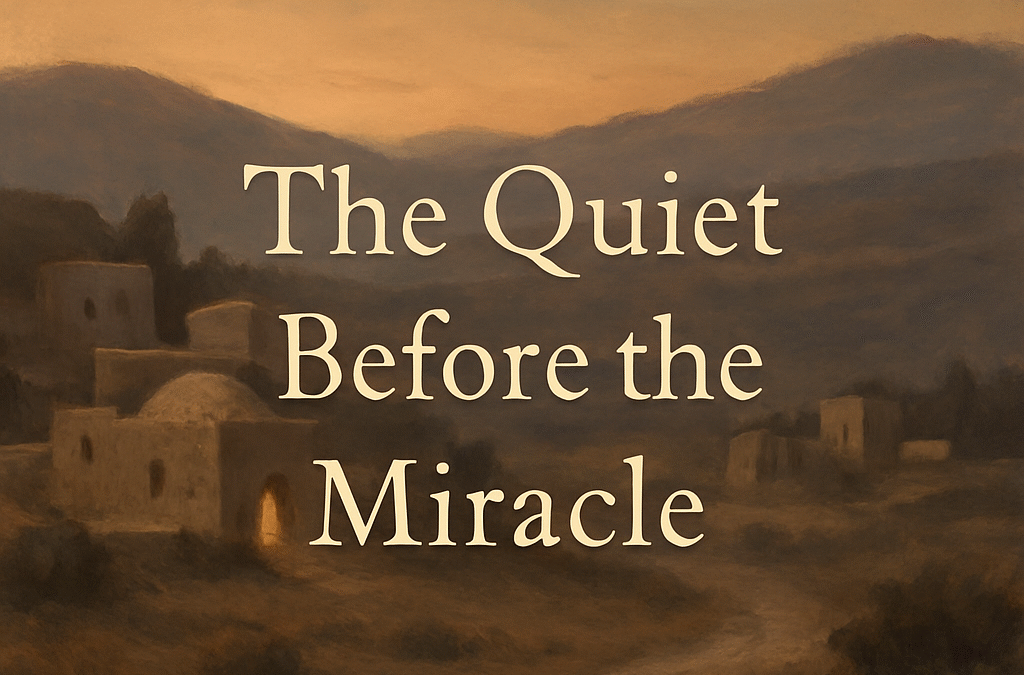
No Room for the Bread of Life
No Room for the Bread of Life
No Room for the Bread of Life
Mary and Joseph were exactly where God had led them.
That’s easy to forget.
An angel had spoken. A promise had been given.
And still—so much remained unclear.
They traveled because they were forced to.
A government decree.
A political power they could not resist.
The road was long.
Mary was heavy with child.
Joseph carried a responsibility he never asked for and could not fully explain.
And when they arrived in Bethlehem, they knocked.
Door after door.
House after house.
Closed.
Not only because the city was crowded—but because of who they were.
Unmarried. Pregnant. Complicated. Inconvenient.
They were rejected.
“But you, Bethlehem Ephrathah,
though you are small among the clans of Judah,
out of you will come for Me
one who will be ruler over Israel.”
— Micah 5:2
And yet, the greatest miracle of all eternity was unfolding.
Bethlehem—the City of Bread—had no room for the Bread of Life.
Mary and Joseph did not know the words that would one day be written about that night.
They did not know how the story would echo through centuries.
They only knew obedience.
And confusion.
And silence.
They were exactly where God had led them—
and still did not understand what He was doing yet.
“And she brought forth her firstborn Son,
and wrapped Him in swaddling cloths,
and laid Him in a manger,
because there was no room for them in the inn.”
— Luke 2:7
God did not wait for understanding.
He did not wait for comfort.
He did not wait for welcome.
He came anyway.
Not to a place of honor—but to a place that would receive Him.
Not where doors were open—but where space could still be made.
And now the story slows.
Because in a very real way… you were there too.
Imagine the knock.
The interruption.
The hesitation at the door.
A young couple.
A pregnant girl.
A request that feels awkward, inconvenient, costly.
And unknowingly—
the Lamb of God stands outside.
“Here I am! I stand at the door and knock.
If anyone hears My voice and opens the door,
I will come in…”
— Revelation 3:20
Would you open the door?
Or would you quietly close it—
not out of cruelty,
but out of discomfort?
Out of fear?
Out of a life already too full?
That is the question Christmas still asks.
Because the story didn’t end in Bethlehem.
The Bread of Life still comes quietly.
Still comes humbly.
Still comes without forcing His way in.
And He still knocks.
Not asking for perfection.
Not demanding understanding.
But asking for room.
You may not understand what God is doing in your life right now.
Mary and Joseph didn’t either.
Understanding was never the requirement.
So the question lingers—gentle, searching, unavoidable:
If you had been there that night…
would you have made room?
And now—
will you answer?
Lord,
I confess how easily my life becomes full—
full of plans, noise, and reasons.
This Christmas, I don’t want to stand safely outside the story.
I want to open the door.
Even when it’s uncomfortable.
Even when I don’t understand.
Even when it costs me something.
You are the Bread of Life.
Teach me to make room—for You, here and now.
Amen.




